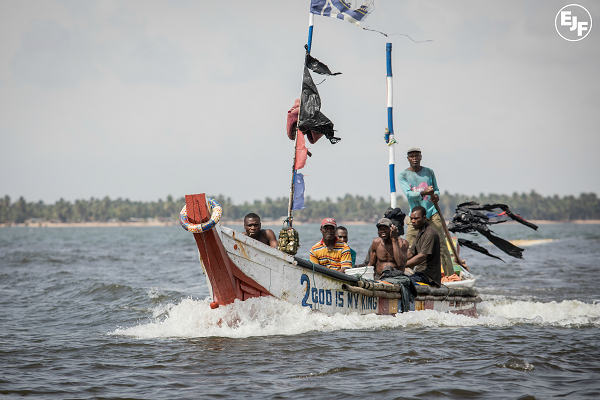
Stakeholders approve draft fisheries management plan
Stakeholders in the fisheries sector last Tuesday unanimously approved a draft Fisheries Management Plan (FMP) for the sustainable management and development of Ghana’s fisheries sector.
The five-year plan, which is to last from 2022 to 2026, was adopted after a day’s validation workshop in Accra, where stakeholders went through the final screening of the FMP before formally endorsing it.
It is expected to address management and conservation limitations experienced during the implementation of a previous plan between 2015 and 2019.
At the end of the meeting, key representatives of industrial and artisanal fisheries, academia, civil society organisations in the sector, the Environmental Protection Agency and the Marine Police made declarations approving the content of the plan and committing to its implementation.
Importance
The Deputy Minister of Fisheries and Aquaculture Development, Mr Moses Anim, said the fisheries sector was of great socio-economic importance to Ghana, providing jobs and income to a number of people.
He said the plan was based on principles of best scientific information available, good management practices, and ensuring utilisation of fisheries resources.
He said the ministry would now present the plan for cabinet approval, gazette it and undertake public sensitisation.
He expressed the hope that the plan would see better evaluation with a timeline and a checklist to monitor what had been executed to achieve the expected outcomes.
He said section 50(1) of the Fisheries Act, 2020 (Act 625) stipulated that industrial and semi-industrial trawlers should be operated by not less than 75 per cent of Ghanaians in the crew.
Role-playing
The Chairman of the Fisheries Commission Board, Prof. Francis K. Nunoo, said Act 625 mandated the Fisheries Commission to prepare and continuously review a fisheries plan for the management and development of Ghana’s fisheries sector.
He urged all stakeholders to play a watchdog role to reverse the downward trend of the fisheries sector.
The Executive Director of the Fisheries Commission, Mr Michael Arthur-Dadzie, said the Fisheries Commission played a leading role in the management and conservation of the country’s fisheries resources.
“Saving our sea is our collective responsibility. This is not the time to take an entrenched position, but to build consensus,” he said.
Describing the plan as a “walking document”, he explained that an operational committee comprising all stakeholders would frequently undertake monitoring and evaluation of the activities under the plan.
The Chief of Party of the USAID Ghana Fisheries Recovery Activity (GFRA), Ms Heather D’Agnes, described the plan as an ambitious one, which the GFRA was ready to support towards its implementation.
“No plan will be perfect; there will be opportunities for adjustment to make it better, and l am happy an operational committee will be in place to do that,” she said.
Content
An official of the Fisheries Commission, Ms Rebecca Sackey-Mensah, said some of the challenges of the sector currently included excessive fishing effort exerted in all fisheries, inadequate information on biology of the stocks and current biomass levels as well as a weak enforcement of fisheries laws and regulations.
She said other challenges included inadequate information and regulations on gears used for fishing, low levels of protection of marine habitat, impact of climate change and the socio-economic wellbeing of actors within the fisheries value chain.
The management plan, she said, had been developed to align fishing effort with estimated annual sustainable levels, improve data collection and enhance knowledge of the biology; enforce fisheries legislation more adequately, enhance knowledge on fishing gear, and to develop gear regulations.
Measures to address the challenges, she said, would include the full roll-out of canoe identification card, re-classification of canoes and inshore vessels, development and implementation of a new licensing regime, implementation of closed season for all vessels, implementation of new gear regulations, improved data collection and analysis, strengthening of fisheries enforcement and implementation of co-management policy.
She said measures would also be put in place to mitigate the impact of climate change and reduce post-harvest losses as well as promote alternative or supplementary livelihood schemes.

